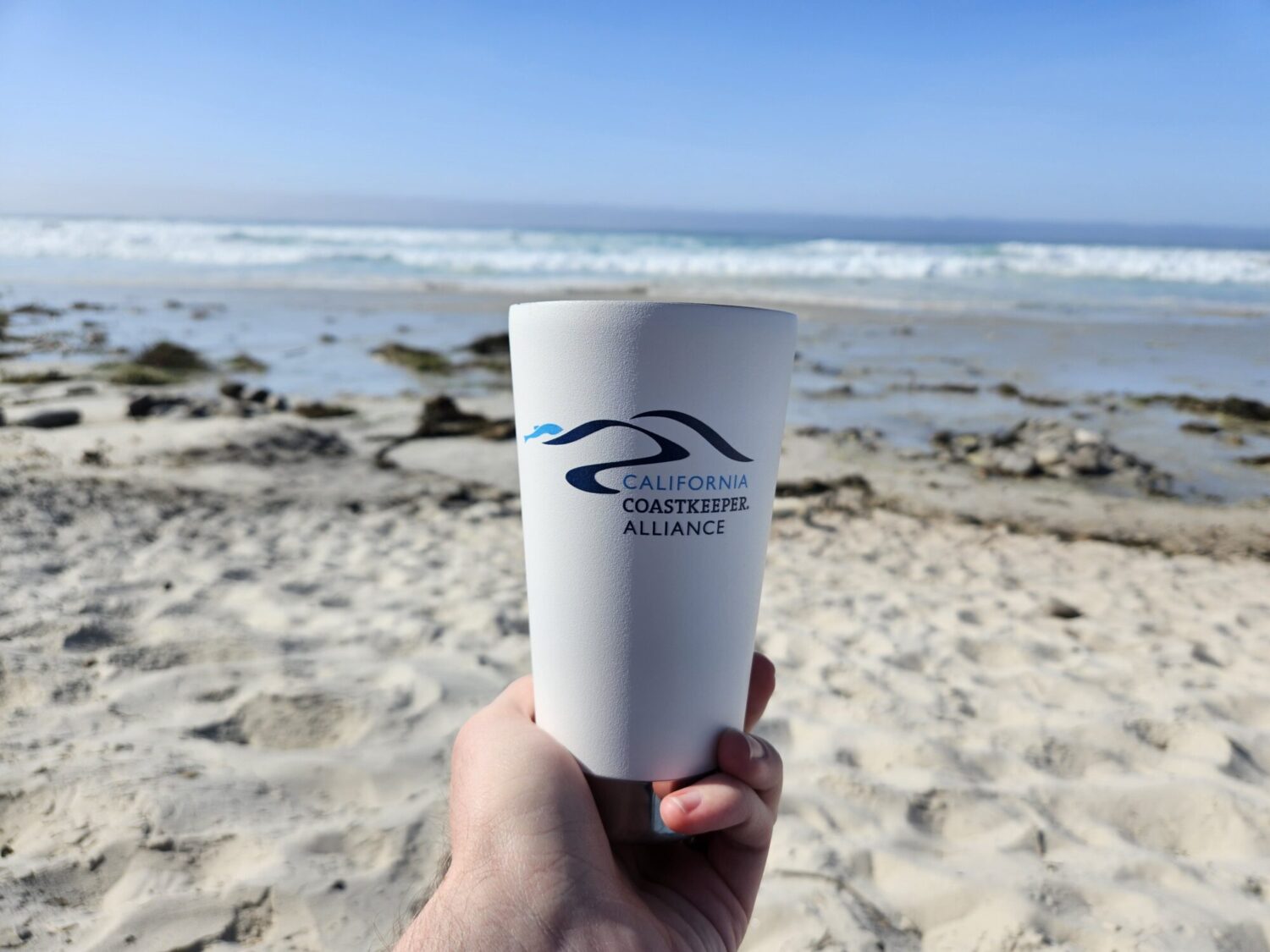
California Coastkeeper Alliance has much to celebrate in 2023 – from nominating the first new marine water quality protections in 50 years, to successfully advocating for the nation’s first direct potable reuse regulations and bringing California a step closer to sustainable water supplies. As we head into another challenging water year in California, we are taking a moment to reflect on our top 10 achievements over the past year:
- Nominated the first new water quality protections for California’s ocean waters in 50 years. California’s Marine Protected Areas are our ocean’s climate ‘hope spots,’ yet only 40% of the reserves are protected from pollution. With our nomination, we hope the Point Sur Marine Protected Area will benefit from the first of many new protections to prevent land-based pollution from impacting our most precious ocean habitats.
- Enacted Assembly Bill 755 (Papan) to ensure that low-income communities do not subsidize the highest water users in the community. The California Constitution requires households to pay their proportional share for water. Low-income households typically use less water, and yet, are on the hook to pay for infrastructure upgrades driven by the highest water users. AB 755 requires water agencies to look at high demand costs and adjust rates equitably.
- Obtained the nation’s first direct potable reuse regulations. Most California cities use water once and dispose of it as a waste, at tremendous environmental and economic cost. Direct potable reuse allows a community to treat its wastewater to highly pristine drinking water and inject it directly back into the water distribution system.
- Challenged the Central Coast Agricultural Order to protect communities’ drinking water and to prevent toxicity. The State Water Board struck down the Order’s enforceable limits on fertilizer application, which degrades groundwater and communities’ drinking water supply, and failed to implement stream-side buffers to prevent polluted runoff into waterways. The lack of enforceable groundwater limits and surface water protections only perpetuates an untenable status quo for California’s disadvantaged communities.
- Enacted AB 655 (Petrie-Norris) to ban all species of Caulerpa greenalgaein California, which pose a serious threat to native marine life. Caulerpa is a genus of extremely invasive green algae commonly used in aquaria. Once released into the wild, it chokes out native seaweeds and steals habitat from marine life. California has already dealt with two Caulerpa taxifolia infestations, costing taxpayers over seven million dollars and six years of eradication efforts.
- Obtained favorable court decisions on critical issues to hold the largest equestrian facility in Northern California accountable for clean water. Our case aims to require large animal operations to prevent polluted discharges into the Cosumnes River, and these court decisions bring us one step closer to achieving this goal.
- Welcomed the Shasta Waterkeeper to the California Coastkeeper Alliance. The Shasta Waterkeeper works to protect ecosystems and river-dependent communities from excessive water diversions, dams, and pollution.
- Resolved seven Clean Water Act cases that provided over $140,000 in funding for local community watershed projects. Our enforcement program aims to clean up pollution while ensuring that industrial facilities statewide are made aware of clean water laws to prevent future violations.
- Obtained emergency flow regulations to protect salmon in the Scott & Shasta Rivers. The Scott and Shasta Rivers were once some of the most productive salmon habitats in the Western United States. Today, the rivers routinely dry to less than belly-scraping levels. The emergency regulations will help ensure the rivers can flow and salmon can thrive.
- Challenged the County of Sonoma’s Groundwater Ordinance to protect the Russian River and its tributaries from excessive groundwater pumping. During drought, Sonoma County allows streams to be pumped dry by neighboring wells, killing juvenile salmon and causing algae blooms that can kill pets and harm children. Our lawsuit aims to ensure Sonoma County residents and businesses live within their collective means.

Executive Director Sean Bothwell leads CCKA’s initiatives to fight for swimmable, fishable, and drinkable waters for all Californians.



